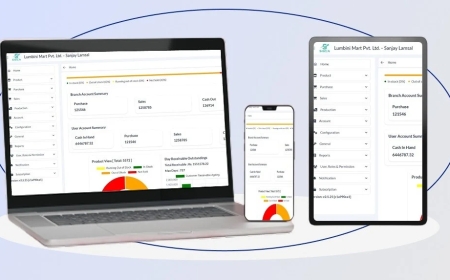How to Navigate the Medical Practice Valuation Process Successfully
Learn how to navigate the medical practice valuation process with confidence. Discover key steps, common pitfalls, and tips for achieving an accurate valuation.

Successfully navigating the process of valuing a medical practice requires a clear understanding of financial metrics, market conditions, and strategic goals. Whether you're preparing to sell your clinic, merge with another entity, or simply assess its worth, accuracy and objectivity are critical. Many healthcare professionals underestimate the importance of thorough preparation when entering this phase, which can lead to undervaluation or missed opportunities.
A proper medical practice valuation is more than just calculating numbersit involves understanding the true income potential, patient base, operational efficiency, and intangible assets like brand reputation or staff expertise. It also accounts for industry trends, payer mix, and geographic demand. Getting expert guidance ensures you're not relying solely on financial statements but capturing the full picture of your practice's value.
Working with a professional broker or consultant can streamline the process and provide confidence in the figures you present to buyers or partners. They analyze key performance indicators, adjust for liabilities, and create a defensible valuation that holds weight during negotiations. With so much at stake, treating the valuation process as a strategic investment pays off in better deal outcomes and long-term success.
The Key Elements That Influence Value
Valuing a medical practice involves more than just looking at profit and loss sheets. Several important factors contribute to the final figure, and each can significantly impact the overall worth. From patient demographics and contract terms with insurers to physician reputation and service diversity, every component plays a role in how potential buyers or investors perceive value.
A comprehensive medical practice valuation evaluates both tangible and intangible assets. Tangible assets include equipment, property, and inventory, while intangible aspects involve goodwill, referral sources, and brand recognition. Practices with diversified services and stable patient volume typically score higher in terms of value.
Understanding what drives value helps practice owners make informed decisions, especially when preparing to sell or transition. Enhancing operational performance or investing in digital systems can positively impact valuation. The better you understand your own metrics and how they compare to similar practices in your market, the stronger your position becomes during discussions or negotiations.
Understanding Revenue and Cash Flow
One of the most scrutinized aspects during valuation is revenue performance. Buyers and appraisers want to know how stable and predictable your income is. More than just gross revenue, its the net incomewhat remains after expensesthat truly matters.
Medical practice valuation takes into account how revenue is generated, whether from private pay, insurance contracts, or government programs. Consistent and diverse revenue streams are viewed more favorably, as they lower the risk for future owners. If income heavily depends on one provider or payer, it can reduce the perceived value of the practice.
Analyzing past cash flow trends also reveals the health of the business. Clean and accurate financial documentation shows transparency and helps build trust with potential buyers. Consistency in income signals stability, which is one of the strongest selling points when negotiating.
The Role of Patient Base and Retention
Your patient base tells a story about the demand, reliability, and potential for future growth of your medical practice. A large, loyal, and diverse patient population boosts the perceived stability and revenue potential. Evaluators look closely at how many active patients you have, the retention rate, and how those patients are acquired and maintained.
Practices with effective patient communication systems and follow-up procedures are more attractive during medical practice valuation. These systems indicate strong engagement, which often leads to higher retention and increased recurring revenue. High turnover or irregular patient flow, on the other hand, can signal problems with service quality or operational management.
Furthermore, practices that cater to specific communities or niche specialties often command higher valuations because of their unique market position. The key is to demonstrate patient loyalty and satisfaction through reviews, return visits, and stable appointment volume.
Preparing Financials for Accurate Assessment
A clean set of books is essential for any successful valuation process. Disorganized or unclear records can raise red flags and potentially reduce trust in your valuation numbers. To maximize your practices appeal, your financial documentation should clearly show revenue trends, expenses, payroll, and debts.
Buyers and evaluators often request at least three years of tax returns, profit and loss statements, balance sheets, and accounts receivable reports. These help them understand not only how profitable the practice is but also how efficiently it operates. Identifying non-recurring expenses or owner-specific costs can also improve the adjusted income figures and present a more accurate earning potential.
An expert broker or accountant familiar with medical practice valuation can help standardize and present these documents professionally. This transparency not only adds credibility to your asking price but also streamlines the negotiation and due diligence phases.
The Impact of Staff and Operational Systems
Behind every successful medical practice is a team that ensures consistent service and patient satisfaction. The quality and experience of your staffphysicians, nurses, and administrative personnelcontribute heavily to a practices performance and its future continuity.
During medical practice valuation, buyers often assess whether the team will remain after a sale and how much the business depends on the current owner. A strong, independent operational system where the team can function with minimal disruption post-transition adds tremendous value.
Additionally, modern systems for scheduling, billing, and patient communication increase efficiency and reduce operational risks. Practices using updated software and automation tools tend to be more attractive and easier to integrate with other organizations, enhancing their market value.
Location and Market Conditions Matter
A practices geographic location can significantly influence its valuation. Urban areas with high population density may have a larger patient pool but also greater competition. Conversely, rural practices might offer exclusivity but face challenges in staffing and growth.
Medical practice valuation considers local demographics, nearby competitors, and trends in healthcare demand. For example, areas with growing aging populations may benefit practices focused on geriatric or chronic care. Understanding these external market forces helps determine not just what your practice is worth now, but how much potential it holds for future growth.
Having up-to-date data on patient demand, payer mix, and referral sources can support a stronger valuation. If your practice is situated in a well-established medical hub or close to hospitals, it can command a premium due to its convenience and collaboration potential.
Conclusion
Selling or valuing a medical practice is a critical decision that demands both precision and expertise. Its not just about determining a numberits about understanding the real worth of years of hard work and patient care. Thats where Strategic Medical Brokers comes in. With deep experience in the healthcare sector, they provide tailored support through every stage of the valuation and transition process. From preparing your financials to identifying value drivers, their team ensures your practice is presented to the market in its best light. Whether you're preparing for retirement, expansion, or a strategic sale, Strategic Medical Brokers helps you make informed, confident choices that align with your long-term goals. Trust in their insight to unlock the full potential of your medical business.




























